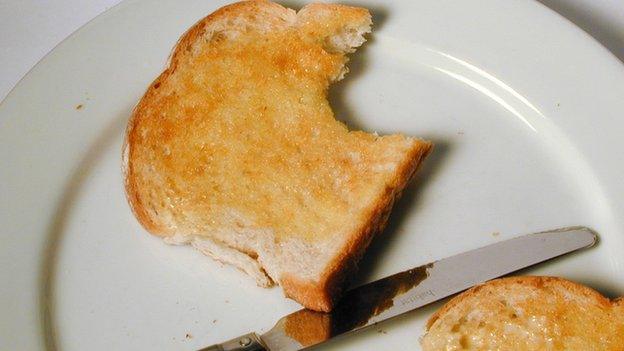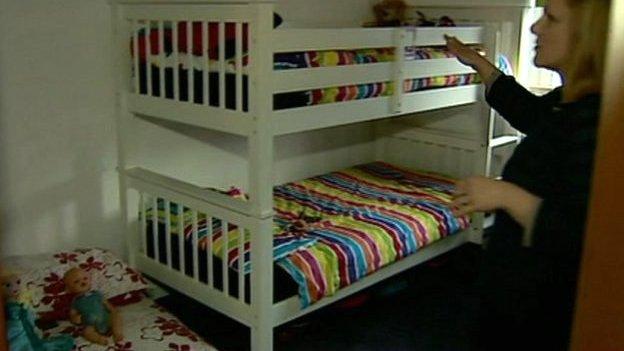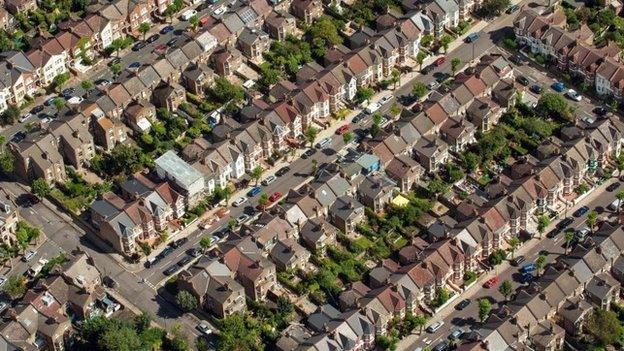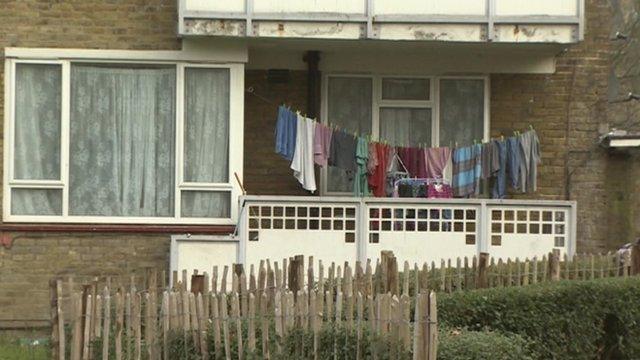Housing benefit changes harming pupils, say researchers
- Published

Children in families affected by the changes often come to school hungry, says a report
Housing benefit changes leave some children hungry and stressed at school and need a rethink, says a small study.
Since 2013, households deemed to have "spare" rooms lose benefit, with children of the same sex under 16 expected to share bedrooms.
The effects undermine other policies designed to support child wellbeing, say Manchester University researchers.
The Department for Work and Pensions said the study was too small to reach meaningful conclusions.
Pilot study
The benefit changes were introduced by the coalition government to encourage some social housing tenants in larger homes to move into smaller properties.
The Manchester University researchers carried out in-depth interviews over 16 months with 14 families affected by the policy in two areas of the city as part of an "exploratory pilot project" to investigate the impact of the changes on children and young people and their education.
They also spoke to a group of 40 head teachers, social workers, housing officers and religious leaders.
Affected families lose the equivalent of £10 to £15 a week for one "spare" bedroom and between £20 and £25 for two, according to government figures quoted in the study.
The "bedroom tax" or "removal of spare room subsidy" was probably the most significant of several benefit changes affecting income, say the researchers.
Some parents said they cut back on food, heating and other essentials like school uniforms and winter coats.
Others reported embarrassment, stress, anxiety and a sense of being socially isolated.
Some children also became distressed, with consequences for their ability to engage with school, says the report.

Children under 16 of the same sex are expected to share rooms under the policy
Hunger also affected children's behaviour and concentration, said teachers.
Children whose families moved into smaller homes and shared bedrooms often lacked a quiet place for homework, or had their sleep disturbed, says the report.
Some schools responded by spending more of their budgets on clothing, meals and advice, using Pupil Premium money, which supports students from low income families. Others included parents and siblings in school breakfast clubs.
One school even opened an account with a shoe shop, says the report.
The findings "confirm a wider picture" that the change is "contributing to significant hardships among low-income families", said author Prof Ruth Lupton.
"This cut in benefits may also be working contrary to other policies intended to support child wellbeing and educational achievement and diminishing their effectiveness," she concluded.
"The government should review its policy," added co-author Prof Erica Burman.
'Misleading'
A government spokesman described the study as small and unrepresentative, saying "it is misleading to generalise from such a tiny sample".
A Department for Work and Pensions spokesman said wider figures for Manchester suggested fewer than 20% of housing benefit claimants in the city had been affected by the policy, and many had offset the change by downsizing or increasing their incomes.
"It is wrong that under the previous system, taxpayers had to subsidise benefit claimants to live in houses that are larger than they require.
"Removing the spare room subsidy has restored fairness to the system and ensures people on benefits make the same choices as everyone else," said the spokesman.
- Published28 March 2014

- Published11 March 2013
